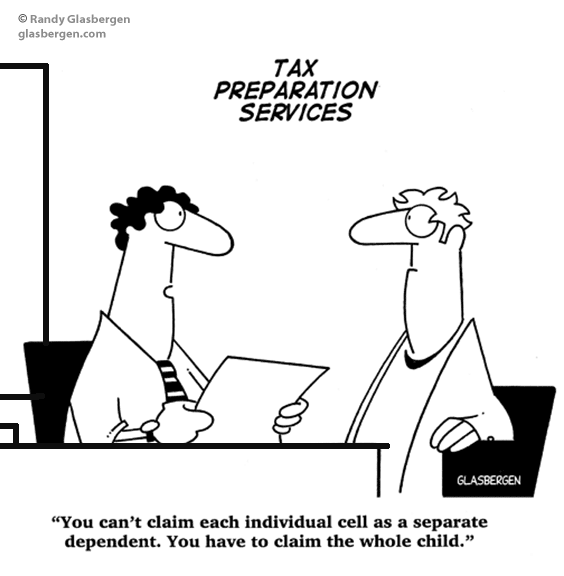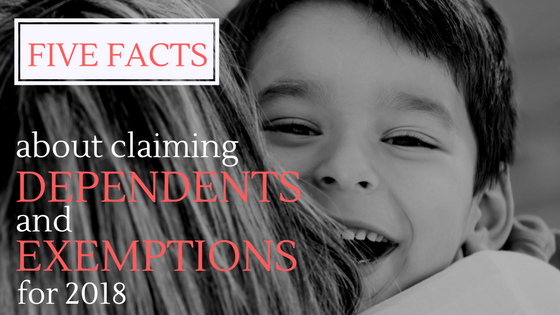There are a few things to note about filing with exemptions and dependents for the 2017 Tax Year, and we want to make sure you are aware of them.
You are likely to be able to claim one personal exemption for yourself and one for your spouse, if you are married. This will help reduce the taxable income on your 2017 tax return. You may also be able to claim an exemption for each of your dependents. This would allow you to deduct up to $4,050 on you 2017 tax return for each dependent.
Here are some pointers to keep in mind…
ONE: Claiming Personal Exemptions
If you are filing jointly, you can claim one exemption for yourself and one for your spouse. If you are married and are filing separately, you can only claim an exemption for your spouse if they had no gross income, are not filing a tax return, and if they were not the dependent of another taxpayer.
TWO: Claiming Exemptions for Dependents
If you have any dependents (for example, a child or a relative who qualifies as a dependent), you can claim an exemption for them. You just need to remember to list a social security number for each of the dependents you are claiming on your tax return.
THREE: Dependents Cannot Claim Exemption
Whether you are claiming an exemption for your dependent on your tax return or not, the dependent cannot claim a personal exemption on their own tax return.
FOUR: Dependents May Have to File a Tax Return
This would take into consideration certain factors such as total income, if they are single or married, and if they owe taxes.
FIVE: Exemption Phase-Out
If you earn above a certain amount, you may lose part or even all of the $4,050 exemption. This would also depend on your filing status.
Questions? The #GoldenGirls are here to help.

*Some facts and figures were taken from the IRS newsletter www.IRS.gov
